
Newsletter Subscribe
Enter your email address below and subscribe to our newsletter

Enter your email address below and subscribe to our newsletter
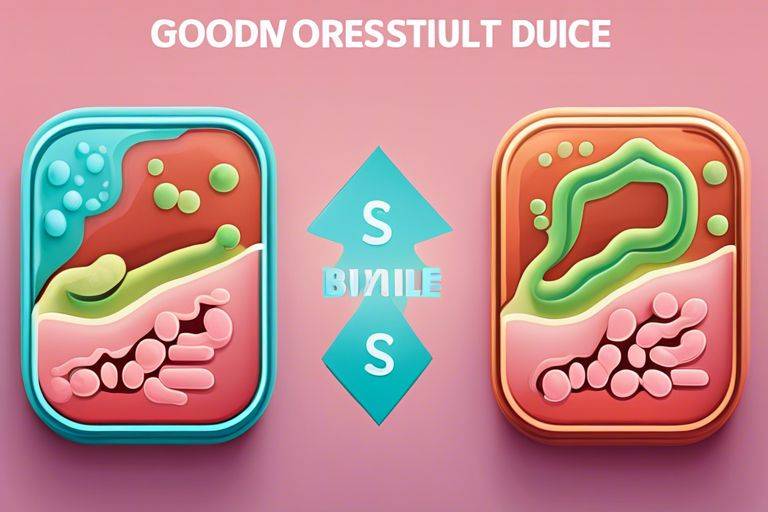
Just imagine a thriving ecosystem within you, where good and bad bacteria battle for supremacy. In my exploration of gut health, I’ve discovered vital insights on how to nurture this delicate balance. To dive deeper into this fascinating topic, I invite you to read Good vs. Bad Bacteria: 5 Tips to Improve Gut Health. Let’s unlock the secrets of your gut together!
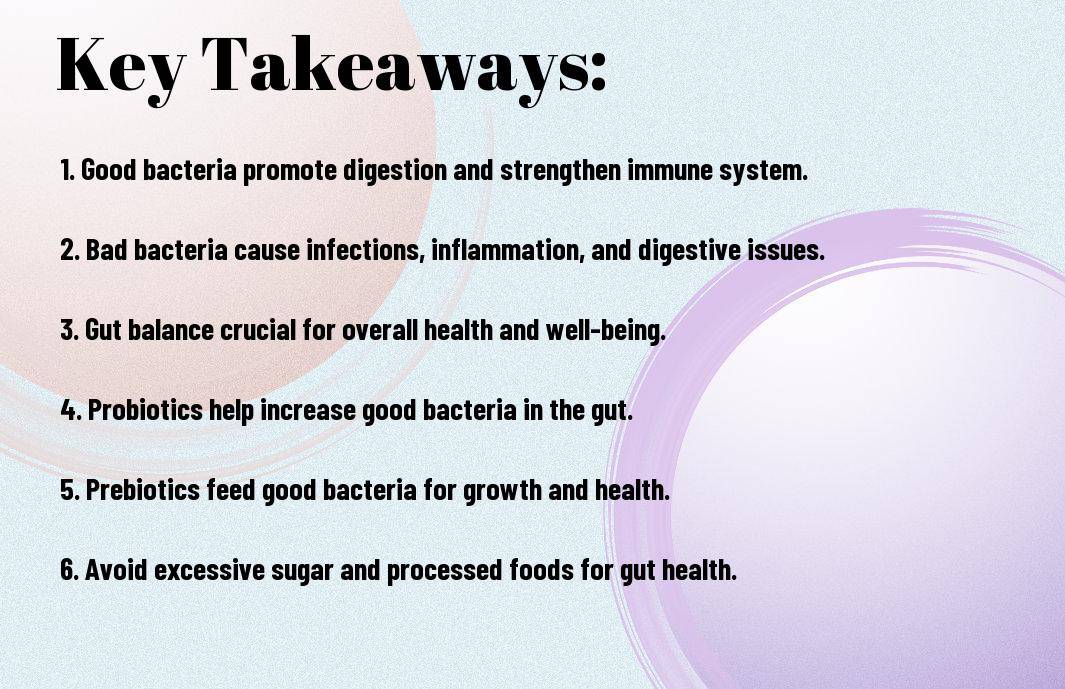
Ah, the gut-brain Connection – it’s truly fascinating how our gut health can impact our mental well-being. Did you know that the gut and brain are in constant communication through the gut-brain axis? Research has shown that a healthy balance of gut bacteria can positively influence our mood, stress levels, and even cognitive function. So, taking care of your gut is not just good for your tummy, but also for your mind!
One of the key functions of our gut bacteria is to support our immune system. One study found that about 70% of the body’s immune cells are located in the gut, making it a crucial player in defending against harmful pathogens and regulating inflammation. A diverse and balanced gut microbiome can boost our immune response, helping us stay healthy and ward off illnesses.
This connection between our gut bacteria and immune system is vital for overall health. A balanced gut microbiome not only helps in fighting infections but also plays a role in preventing autoimmune diseases and allergies. By feeding our gut with a variety of fiber-rich foods, fermented foods, and probiotics, we can support a robust and resilient immune system.
Assuming you’ve heard of the term ‘good bacteria’, you might be wondering what makes them so heroic in gut health. Well, let me enlighten you on the incredible world of these beneficial microorganisms that play a crucial role in maintaining the balance of your gut microbiome.
To kick things off, let’s talk about Lactobacillus, the probiotic powerhouse that deserves a spotlight. This friendly bacterium is known for its ability to promote gut health, aid digestion, and even boost your immune system. With its probiotic properties, Lactobacillus works wonders in maintaining a healthy gut flora.
Heroes come in all shapes and sizes, and in the world of gut bacteria, Bifidobacterium takes on the role of the infant gut guardian. It plays a crucial role in the development of a baby’s immune system and helps protect against harmful pathogens. This beneficial bacterium is like a shield, safeguarding the delicate gut of infants.
It’s fascinating to note that Bifidobacterium is abundant in breastfed babies, showcasing the importance of mother’s milk in providing the necessary nutrients for the growth of these beneficial bacteria. This symbiotic relationship between infant and gut guardian sets the foundation for a healthy immune system later in life.
The next hero on our list is Streptococcus, known for its immune-boosting properties. This bacterium is not only a friend to your gut but also a guardian of your immune system. Streptococcus helps in the production of antibodies and enhances the body’s defense mechanism against harmful invaders, keeping you healthy and strong.
The presence of Streptococcus in your gut can help prevent infections and promote overall well-being. By maintaining a healthy balance of this beneficial bacterium, you are giving your immune system the support it needs to combat various health challenges effectively.
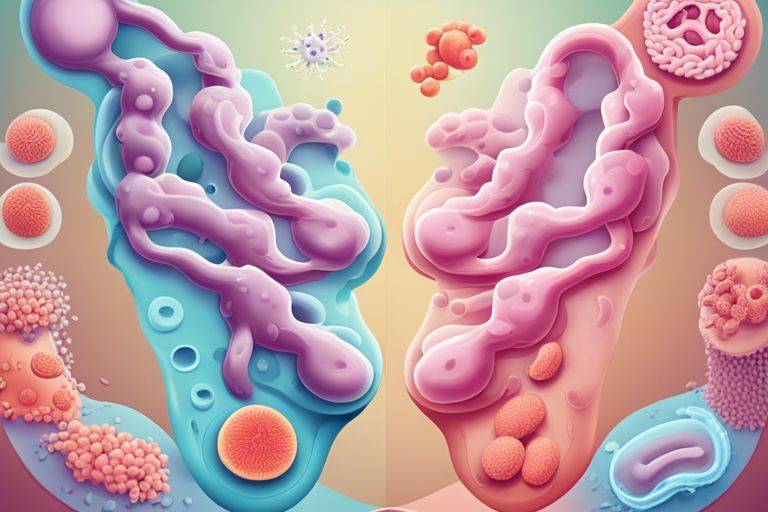
Now, when it comes to the balance of good and bad bacteria in your gut, it’s crucial to understand the role of bad bacteria. As mentioned in my previous post on Strengthen Your Good Gut Bacteria and Boost Health, maintaining a healthy gut flora is imperative for overall well-being.
Causing issues such as severe diarrhea and inflammation of the colon, **Clostridium difficile** is a dangerous bacterium that can disrupt the delicate balance of your gut microbiome.
Villains like **E. coli** are notorious for causing urinary tract infections, leading to discomfort and potential complications if left untreated.
Culprit spreading urinary tract infections, **E. coli** is a common bacterium that highlights the importance of maintaining a healthy gut to prevent such infections.
Salmonella is another **bad bacteria** that can wreak havoc on your digestive system.
For instance, **Salmonella** can be found in contaminated food and water, causing symptoms like diarrhea, vomiting, and fever. It’s crucial to handle and cook food properly to avoid falling victim to this food poisoning offender.
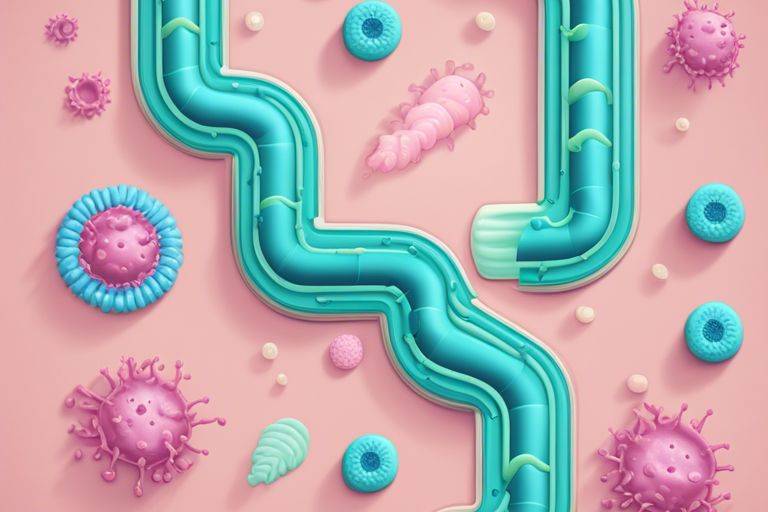
Unlike what some may think, the gut is a complex ecosystem where good and bad bacteria live together in a delicate balance. This balance is crucial for maintaining overall gut health and ensuring proper bodily functions.
An imbalance in the gut microbiome can be caused by various factors such as diet, antibiotic use, stress, and environmental toxins. These disruptors can lead to an overgrowth of harmful bacteria and a decrease in beneficial ones, impacting your health negatively. Assume that restoring this balance is necessary for optimal well-being.
The consequences of an imbalanced gut can be far-reaching, affecting not only your digestive system but also your overall health. An imbalance in the gut microbiome has been linked to a variety of health issues, including digestive disorders, weakened immune system, mental health issues, and even chronic inflammation.
With a disrupted balance of good and bad bacteria in the gut, you may experience symptoms such as bloating, constipation or diarrhea, fatigue, and weakened immunity. It’s crucial to prioritize a healthy gut microbiome to support your overall well-being and vitality.
For a healthy gut, diet plays a crucial role. Including a variety of fiber-rich foods like fruits, vegetables, whole grains, and legumes can promote the growth of beneficial bacteria in your gut. Keep in mind, a diverse diet leads to a diverse gut microbiome, so mix it up!
The use of probiotics can be beneficial in maintaining a healthy gut microbiome. Probiotics are live bacteria that can provide numerous health benefits when consumed in adequate amounts. They can be found in fermented foods like yogurt, kefir, sauerkraut, and kimchi.
The key is to choose probiotic-rich foods that contain live cultures and be consistent in consuming them to reap the full benefits for your gut health.
With prebiotics, you can feed the good bacteria in your gut. These indigestible fibers found in foods like bananas, onions, garlic, and whole grains serve as food for the beneficial bacteria, helping them thrive and improve your gut health.
Incorporating prebiotic-rich foods into your diet can help support the growth and activity of the good bacteria in your gut, ultimately enhancing your digestive health.
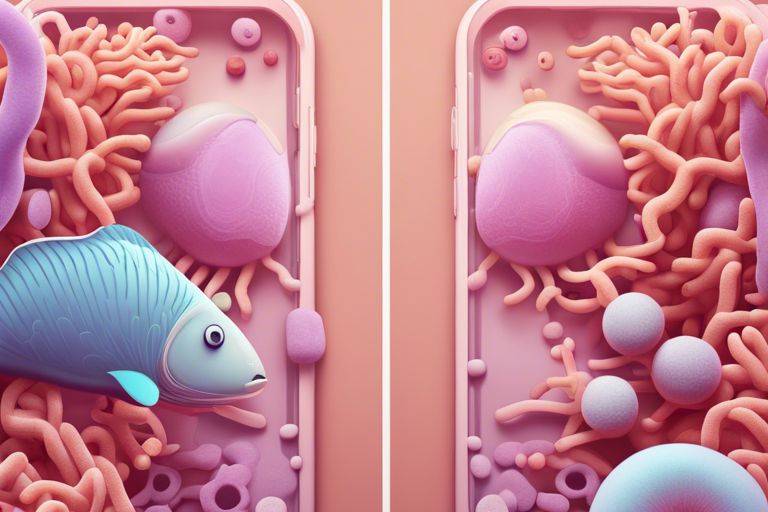
Not all bacteria are bad for your gut; yeast overgrowth can disrupt the balance. The overgrowth of Candida albicans, a type of yeast, can lead to digestive issues, skin problems, and weakened immunity.
SIBO occurs when there is an overgrowth of bacteria in the small intestine, leading to bloating, gas, diarrhea, and nutrient malabsorption. Treatments include antimicrobial therapy, dietary changes, and probiotics.
Treatments for leaky gut syndrome involve addressing the underlying causes such as poor diet, chronic stress, or imbalanced gut flora. Healing the gut lining with the help of nutrients like glutamine and digestive enzymes can help restore gut health.
Plus, incorporating fermented foods rich in probiotics and prebiotic foods like onions and garlic can promote a healthier balance of gut bacteria and support overall digestive wellness.
Now that you know the importance of the balance between good and bad bacteria in your gut, it’s time to take action to support your overall health. By incorporating probiotic-rich foods like yogurt, kefir, and fermented vegetables into your diet, as well as prebiotic foods like garlic, onions, and bananas, you can promote a healthy gut microbiome. Be mindful of, a happy gut leads to a healthier you!
A: Good bacteria, also known as probiotics, are beneficial for gut health and overall well-being. Bad bacteria, on the other hand, can cause illness and disrupt the balance of the microbiome.
A: Good bacteria support digestion, boost immunity, and help protect against harmful pathogens.
A: Good bacteria can be found in fermented foods like yogurt, kefir, sauerkraut, and kimchi, as well as in probiotic supplements.
A: Bad bacteria can cause infections, inflammation, and digestive issues like bloating, gas, and diarrhea.
A: Poor diet, stress, antibiotics, and lack of sleep can all disrupt the balance of bacteria in the gut.
A: Consuming probiotic-rich foods, reducing stress, getting enough sleep, and avoiding unnecessary antibiotic use can help maintain a healthy balance of gut bacteria.
A: If you have digestive issues, a weakened immune system, or have recently taken antibiotics, you may benefit from taking a probiotic supplement to help restore the balance of good bacteria in your gut.